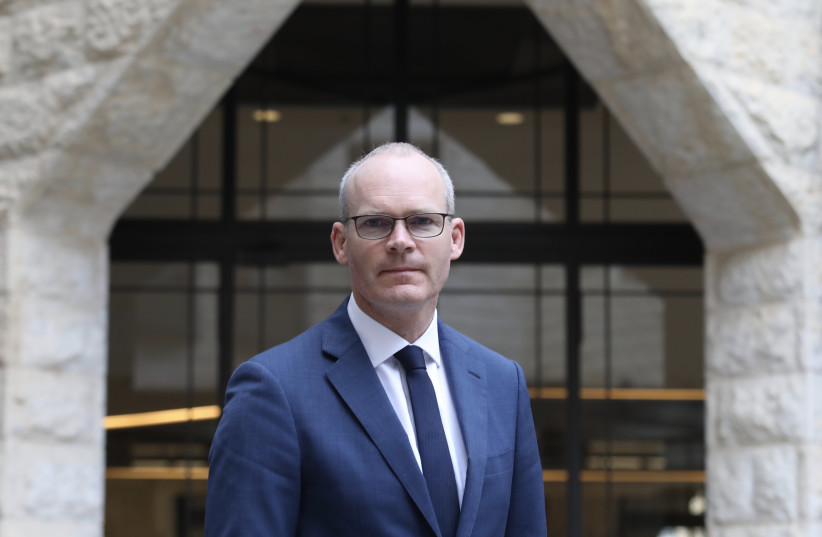Recent statements by Ireland’s leaders relating to Palestinian Authority President Mahmoud Abbas’s visit over the weekend have raised concerns in pro-Israel groups that Dublin plans to recognize a Palestinian state.
Both Irish Prime Minister Michael Martin and President Michael Higgins referred to Abbas as “the President of the State of Palestine” when tweeting about their meetings with him.
In response to a parliamentary question about recognizing a Palestinian state, ahead of Abbas’s visit last week, Irish Foreign Minister Simon Coveney said Ireland might do so if it feels progress toward a two-state solution has stalled.
“Our commitment is to recognize a State of Palestine as part of a lasting settlement to the conflict, or when we believe doing so will progress efforts to reach a two-state solution or protect the integrity of Palestinian territory,” he said.
However, “in the absence of progress towards a two-state solution, I would be prepared to recommend to the Government recognition by Ireland of a State of Palestine,” he added.

Coveney acknowledged that doing so would contradict EU foreign policy and thus reduce Dublin’s influence on the Israel-Palestinian conflict at the EU and on international foreign policy.
“The timing and context of any such decision would affect whether such a loss of influence would be matched by a commensurate benefit for the Palestinian people and a positive impact on the peace process and a two-state solution.”
Irish Foreign Minister Simon Coveney
“The timing and context of any such decision would affect whether such a loss of influence would be matched by a commensurate benefit for the Palestinian people and a positive impact on the peace process and a two-state solution,” he said.
Ireland on Israeli-Palestinian conflict
Both houses of Ireland’s legislature passed nonbinding motions recognizing a Palestinian state, but the government has yet to adopt that position.
Ireland is “absolutely not anti-Israel,” Coveney said at a press conference with PA Foreign Minister Riyad al-Malki, adding that his government disagrees with “some in the Irish political system who seem to want to cut all ties with Israel.”
At the same time, he said, Israel was acting illegally as “an occupying power on Palestinian lands.”
Abbas and Malki stopped in Dublin on the way to this week’s UN General Assembly, where the Palestinians are seeking full UN membership. Coveney said Ireland supports that change.
Funding for Palestinians
Coveney also announced €2 million in additional support for UNRWA on Sunday, following his meeting with Abbas. The aid is meant to help with healthcare, education, humanitarian relief and social services, and it comes in addition to €6m. that Ireland already disbursed to UNRWA this year.
UNRWA, the agency for Palestinian refugees and their descendants, has faced criticism for featuring antisemitic incitement in its textbooks and employing teachers who have written antisemitic social-media posts, among other issues.
